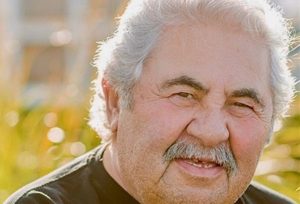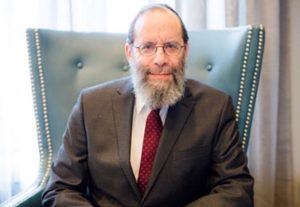Some 25 years ago, the word “continuity” entered the Jewish lexicon of buzzwords, becoming a term of great communal significance and concern. This followed the 1990 American Jewish population survey, which painted a disheartening demographic, cultural and religious portrait of the Jewish community. In a North America flowing with the milk and honey of affluence, freedom and abundant personal choice, increasing numbers of college-age Jews were drifting to the margins of their people.
Alarmed at the breaks in the ethereally forged chain of inter-generational continuity, community leaders throughout North America mobilized. There was a great deal of work to do to stem and perhaps even repair the fractures in the precious connective links that bound past to present and future. And indeed much effort has been undertaken to try to bring young Jews back to where they once stood: in the midst of a gratifying sense of belonging to our wonderful, if sometime maddening, people.
Some 40 years ago, in November 1975, the UN General Assembly declared Zionism to be a form of racism. Despite the subsequent rescission of the declaration, that vile calumny has been continually repeated. Israel’s very existence has been constantly brought into question. In effect, the UN became the incubator for the seeds of enmity and hatred toward the Jewish state that have ripened today into full-blown forests of poisoned fruit.
READ: HOW TO GET SERIOUS WITH UN BIAS
At the same time that our young people were entering universities and colleges, campuses were roiling with all manner of morally muddled ideologies, “politically correct” attitudes, and, indeed, revolutionary zeal that lionized individuals like the stubble-bearded leader of the PLO, Yasser Arafat, as an exemplar of noble higher purpose.
No discussion about the manner in which Israel and its supporters are treated on campus can be conducted without the unhappy acknowledgment that ugly anti-Semitism and anti-Israel invective have encroached everywhere. And no community in North America – including in Canada – has escaped the effects of the poison inhaled by our Jewish youth, mostly without antidote, for 40 years.
Many of our children on the margins of Jewish literacy and Jewish identity, wanting simply to find a comfortable place for themselves among their peers on campus, have internalized and even accepted some of the lies, false images and distortions about Israel and the Jewish People that are now standard discourse in certain quarters.
We understand that Jewish students might wish simply to avoid the anti-Israel flags waving constantly in their faces. But that Jews themselves would be the ones in the forefront waving those flags is as distressing as it is painful. Recently, for example, we read of an alumna from Oberlin College, an acclaimed liberal arts school in Ohio, who lamented “the multiple times the Holocaust was referred to as ‘white on white crime’ by my hip white Jewish peers.” Imagine: the Shoah being dismissed as mere “white on white” crime and thus diminished in its impact and historical importance!
READ: MCGILL BDS MOTION PASSES BY SOLID MARGIN
The antidote to the poison our children are being exposed to, of course, is the reliable anti-toxin of Jewish history: education. Enabling our youth to know who they are – through access to sustained, formal and informal education about Judaism, Israel, Jewish culture and our shared history – will fortify them and enable them to reject and refute the distortions and hatred that inundate them.
The independent Jerusalem-based think tank, Jewish People Policy Institute made this very same point in a recent essay. “The clear policy implication of newly mined data on Jewish education, consistent with a long research literature, is that Jewish schooling matters. The creation, expansion, and effective marketing of excellent, attractive, and affordable Jewish educational non-Orthodox day school programs and supplementary school programs for teenagers, is an area where communal intervention can make a measurable difference in the quality of American Jewish identity and the transmission of Jewish identity to the next generation of American Jews.”
The point bears repeating: affordable Jewish education matters.






